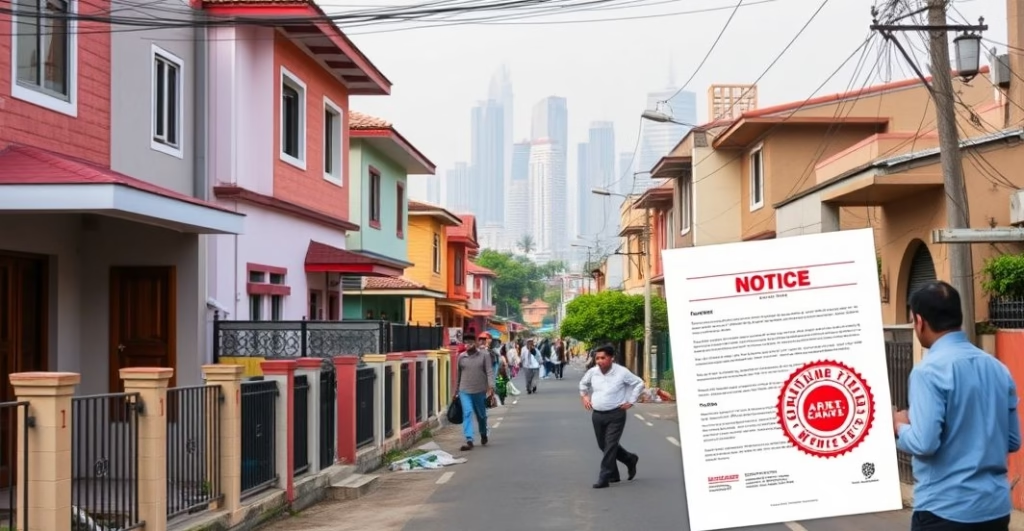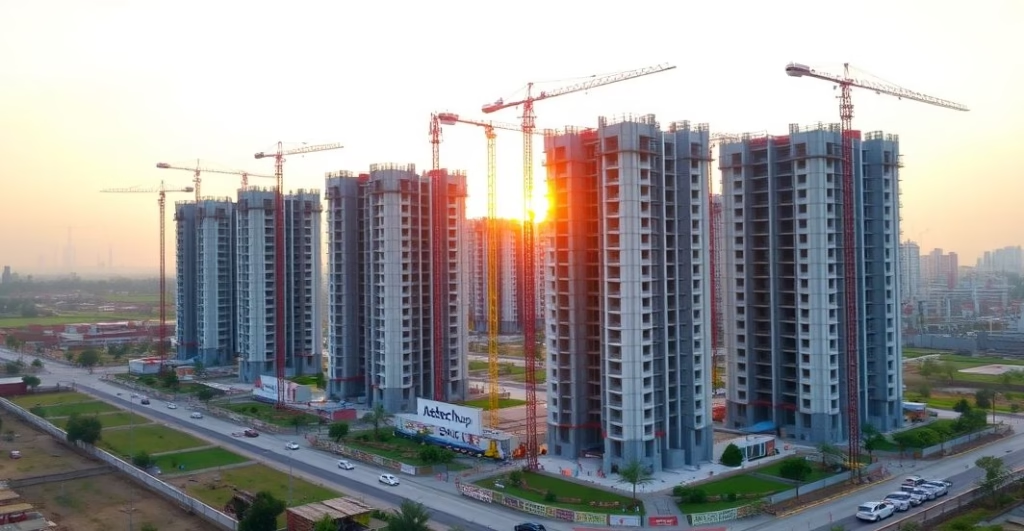Auto-published by Growwh – a smarter way to scale content and marketing. Want to know more? Chat with us.
Allahabad HC dismissed YEIDA appeals, upholding RERA awards for nearly 150 allottees and directing payment of pending dues with delay interest at MCLR+1%.
Allahabad High Court upholds RERA relief for delayed plot allottees
The Allahabad High Court has dismissed nearly 150 appeals filed by the Yamuna Expressway Industrial Development Authority (YEIDA), confirming RERA awards in favour of plot allottees and directing the authority to pay pending dues with delay interest. The order reinforces promoter liability under RERA and clarifies how pre-deposits under Section 43(5) can be appropriated toward buyers’ dues.
What the judgment says — key takeaways
- Appeals dismissed: The High Court confirmed the Appellate Tribunal directions that YEIDA must pay pending dues with interest calculated at MCLR + 1% per annum in specified cases.
- Pre-deposit appropriated: Pre-deposits made under Section 43(5) of RERA are treated as part-payment of assessed liability and can be used to satisfy buyers’ claims; refunds are only due if the appeal succeeds.
- Promoter liability affirmed: Under Section 18 of RERA, promoters remain liable to pay compensation or interest for delayed possession when buyers seek refunds or compensation, even if delays arose from litigation or third-party disputes.
- Interest computation limits: Interest entitlement is limited up to the date of physical possession, and certain triggers (such as four years from allotment or payment of 75% premium) affect when higher interest rates apply.
Context: the Greater Noida plot schemes
The dispute concerns YEIDA’s first residential plot scheme launched in 2009 for plots in Sectors 18 and 20 near the Yamuna Expressway — a project covering around 21,000 plots. Development and possession were delayed by land acquisition disputes, farmers’ compensation orders and prolonged litigation. While several plots now have checklists and completion certificates, a significant number remain pending, leaving many allottees seeking relief under RERA.
Why this judgment matters for buyers and developers
This ruling strengthens the enforcement architecture of RERA in three important ways:
- It underlines that promoters cannot deflect liability for delay by pointing to external factors once buyers claim compensation.
- It confirms that pre-deposits are not simply refundable blocks but can be applied to satisfy buyers’ dues in execution proceedings.
- It provides clarity on the applicable interest rate formula (MCLR + 1%) in long-drawn cases, which will influence settlement expectations and accounting for both promoters and buyers.
Numbers that matter
YEIDA allocation data referenced in the proceedings shows approximately 9,865 plots allotted in Sector 18 and 10,541 in Sector 20. Checklists have been issued for about 16,562 plots, nearly 12,000 plots have been registered by allottees and roughly 1,200 completion certificates have been granted — yet more than 13,400 plots still awaited checklist completion at the time of the order.
Practical steps for affected allottees
If you are an allottee in a delayed project, consider taking these actions:
- Preserve all allotment letters, payment receipts, correspondence with the developer and any RERA orders or notices.
- Verify whether any pre-deposit or section 43(5) funds are recorded against your case in the regulator’s records.
- Where possession is delayed, file (or follow up on) execution proceedings under RERA to ensure appropriation of pre-deposits and release of due compensation.
- Consult specialists for interest calculation and enforcement — delay interest formulas such as MCLR + 1% require careful financial computation.
For non-resident Indians and remote investors, it’s especially important to perform focused checks before buying or enforcing rights. Learn more about legal due diligence for NRI property buyers in India to protect your investment and understand enforcement pathways under Indian law. Broader NRI real estate insights can also help buyers navigate tax, repatriation and registration complexities when purchasing in projects affected by delay.
Impact on developers and future projects
Developers and statutory authorities should treat this judgment as a reminder to: (i) maintain transparent buyer communication, (ii) ring-fence customer funds in accordance with RERA norms, and (iii) plan contingency and disclosure clauses for land acquisition and litigation risk. Clearer accounting for delay interest and prompt implementation of tribunal directions will reduce litigation and reputational exposure.
Conclusion — a compliance and consumer-protection precedent
The Allahabad High Court decision reaffirms RERA’s consumer-protection ethos and clarifies contentious issues on pre-deposits and interest computation. Homebuyers gain stronger enforcement tools, while promoters face greater responsibility to honor timelines or compensate fairly. For continuing updates on similar rulings, regulatory developments and practical guides, see the PropTrust blog for real estate news and legal updates.
Note: This post summarizes key legal directions and practical implications; affected parties should seek tailored legal and financial advice before initiating or responding to RERA proceedings.
This article was auto-generated as part of a smart content campaign powered by Growwh.com. Curious how we do it? Chat with us to learn more about our content automation systems.


